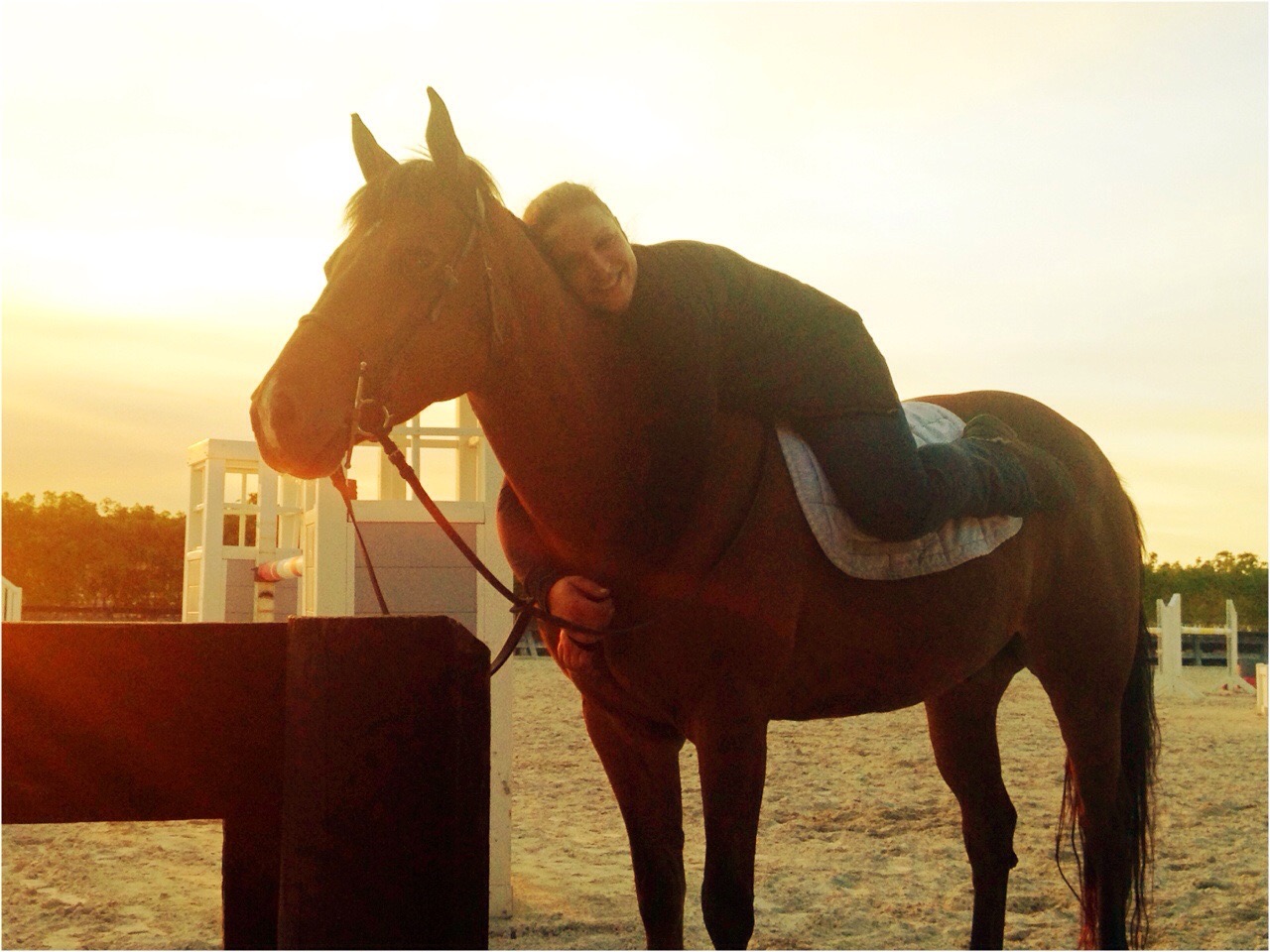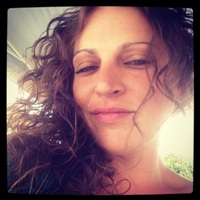View this post on Instagram
The loss of a loved one is a life-changing and traumatic experience.
Relationships between humans and animals have inspired writers and travelers, and have created magic throughout the world for centuries and to this day.
While all pets become family and are a big part of our lives, losing a horse is a distinctly different experience than losing any other relationship, human or otherwise.
Learning how to understand and cope with our feelings of loss and grief is crucial for our survival, as we are complicated and emotional beings who process things in our own unique ways. Understanding the grieving process is important to help us get through these dark times.
In late December of 2002, I was asked to train Doc, a young, large pony with a lot of spirit. I welcomed the challenge, and the next day we went to pick him up. Over time, Doc chose me as his person, and I officially made him a part of my family in 2004. I’ll never forget the way he called for me with a loud whinny when I drove up the driveway or when I entered the barn.
Doc was a handsome bay pony with a reddish-brown, velvety coat and a lustrous black mane and tail. He had a star on his forehead, a white snip on his nose, and a white sock on his left hind leg.
In his younger days, he was quite sassy and fresh—rearing, rowdy, and bucking like a bronco before he’d decide to give in and behave himself. I learned how to train horses because of him. I have him to thank for what he taught me and for where life has taken me.
Doc grew up to be a respectable and overall wonderful horse, on top of being a schmoozer and having his way with people. Just like some humans, Doc was loved by everyone who encountered him.
Animals show us how to love unconditionally. They show us emotions that many people lack. They make the world a less cold and lonely place and bring sunshine to some of our darkest days.
I lived for Doc, and I am a better human because of him.
When times got tough, I knew I couldn’t give up because he relied on me for care and exercise.
Throughout the years, he was the light of my life, my best friend, partner in crime, and right-hand man. He was more than just a horse to me. He was a member of the family, a son. We grew an inseparable bond. Wherever I went, he went. It was a package deal even during a time where I traveled on the road quite often.
But in late June of 2015, I was faced with a crossroads.
I had to make the decision on whether to put Doc down.
When he took a turn for the worst, the veterinarian suggested it would be in his best interest to let him go. Aside from the financial concerns that would arise from trying to save my equine companion, if I were to try, I was not guaranteed that he would be able to live his best life during and after recovery.
“Sometimes, even if you can afford an expensive treatment, a humane death may be the best approach.” ~ Eleanor Kellon, VMD
All alone in South Florida at the time, after Doc’s final battle, my world was shattered.
I was headed on a downward spiral of depression and self-loathing, as this was the most gut-wrenching experience of my existence. Trying to smoke and drink away my sorrows, I unsuccessfully searched for a solution that would numb me from all these emotions I was feeling.
Months of pent-up resentment and anger built up. I felt lost and betrayed by life itself, and it was easy to get emotionally stuck. I began to blame myself and others for why Doc fell ill in the first place, as if any of us could have prevented it, and was guilt ridden that I’d led him to his fate. I no longer felt like the person I once was. I was forever changed.
Thankfully, I eventually found better ways to understand and deal with the loss of my dear equine partner.
If I had continued on the path I first chose, I may not have made it out alive. Through the grieving process, I’d seen a lot of darkness before returning again to the light.
I discovered some information that helped me during this troubling time, and with the many emotions that I’d experienced along the way.
Grief is a whole body experience—physical, emotional, and spiritual—leaving you mentally exhausted, heartbroken, numb, and full of “what ifs.”
Our animals are loved ones to be mourned and honored. Because there are many people who are indifferent about this kind of grief, it is important to find and surround ourselves supportive people who understand that grieving takes time and there are no quick fixes.
When grieving through the loss of a loved one, the small steps we take, and our support system helps us remember to keep living and how to deal with the day-to-day in a new light. It is important to set aside time for ourselves to grieve and release our emotions in our own ways.
After the loss of Doc, some dear loved ones continued to reach out to me, knowing I was all alone and needed support, which offered comfort as I began to process my emotions. It was then that I realized: time is our most valuable ally through the grieving process.
Reaching out to find a path to get through our grief is crucial to help overcome loss. To many people, pets are family members, friends, and fur-babies—companions who reassure us that we are not alone in this world.
Many of us have a deep love for animals, and knowing that there is help out there made my time of grief a little more bearable. One of my Floridian friends reached out to suggest that I help her ride a few of her horses.
I felt so much guilt at the thought of enjoying myself riding, and a sense of disloyalty came over me.
But once I finally decided to ride, instead of guilt. I felt myself being freed. Doc was spiritually telling me to live a happy life. It felt as if he was there with me, even to this day.
Horses truly are my therapy.
Some people move on quickly, purchasing or adopting a new pet, while others may need more time to grieve their loss. To this day I have not yet gotten another horse—but there are plenty of horses in my life that still need my love and care. I continue to reminisce and reflect on the good times, to write down memories and adventures had in journals. I gather photos and make an album to look back on.
While grieving, it is important to continue to meet our basic needs. Self-care is necessary, especially during this emotional time in life. Grief is a horrible feeling and it’s easy to let ourselves go. We must support and care for our bodies, making sure to get proper hydration, nourishment, exercise, and rest.
Isolation makes the pain more intense, especially where there is no outlet to release the emotions bottled up inside. Being with people helps us to bring our focus back to the present. I moved back to New York the year following Doc’s death, where I have most of my friends, family, and loved ones.
Choosing calming practices, such as meditation, yoga, and living a more mindful life helped me to live in the present and not get stuck in ruminating over what (or who) is no longer here physically. In doing so, I can now love and honor the memory of my beautiful boy, Doc.
Time is irrelevant. There are no timetables for grief and loss; it is not something you just get over. To this day I have moments where I still cry and long for my dearest friend. And for me, feeling guilty is still a part of my grieving process.
We have no control over why and how things happen, no say in how long a life exists on this earth. We must understand that we are not at fault. This process is full of intense pain—and, simply, it sucks. I’m learning how to accept the many faces of grief. Maybe, the most healing thing we can do is honor grief as the teacher it is.
Through research, I’ve found many gems of advice from psychologists Adam Clark and April Clay, as well as Eleanor Kellon, veterinarian and expert in senior horse care, all of whom offered ways to help get through the day-to-day while grieving a loss.
Reach out to understanding friends and relatives. Embrace your feelings and emotions. We must allow ourselves time to overcome our loss. These steps are crucial to begin healing.
By entering into relationships with animals, we open ourselves to a partnership, challenges, and transformation. Nothing is permanent, but it doesn’t mean we can’t cherish the memories of what we once had. It is not just in loving them, but in losing them that we are afforded the opportunity to become better humans.
“No heaven can heaven be, if my horse isn’t there to welcome me.” ~ Author unknown












Read 1 comment and reply